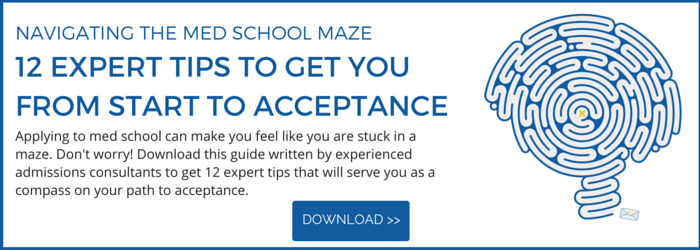
Here are some ideas to help you plan a productive gap year:
1. Boost your BCPM
If you need the time to improve your credentials, you should take this year and enroll in several extra science courses in order to boost your BCPM. This can be accomplished by enrolling in a formal postbac program or just by taking pre-medical courses.
2. Boost your MCAT
You can also boost your credentials by improving your MCAT score. If you weren’t happy with your results the first time around, then taking the exam during your gap year would be an excellent plan for you.
3. Assess your non-academic creds
If you feel that your academic credentials are competitive then you should take advantage of this time to assess your non-academic credentials. Are you a well rounded applicant with research experience, clinical exposure, service involvement, mentoring experience, and leadership strengths? If you are lacking in any of these areas, then seek out a “new” experience that will help to round out your extracurriculars. For instance, many students have considerable clinical exposure but lack research experience – if this is you, then perhaps you should spend your gap year doing research.
Alternatively you may have done many years of research which resulted in co-authorship on publications but have never had much patient contact. If so, then patient interactions are what you should pursue. In other words, you should take this year to pursue opportunities that will supplement your current list of medically relevant experiences while allowing time for both personal and professional growth.
4. Focus on personal growth
You may also want to focus on self development and enrichment during your gap year. Go abroad, travel, teach, or pursue other interests such as writing or dance (or anything!). Seek out unique opportunities like volunteering at a medical mission or partaking in a service year either in your home country or abroad. This is your chance to pursue something you are passionate about!
Whether you spend the year working in a lab, volunteering in a clinic, taking courses or doing something completely non-medical, you will be experiencing the “real” world, maturing, and developing non-tangible strengths such as leadership, motivation, dedication, and compassion – attributes admissions committees are looking for in their applicants.
If you need the time to improve your credentials, you should take this year and enroll in several extra science courses in order to boost your BCPM. This can be accomplished by enrolling in a formal postbac program or just by taking pre-medical courses.
2. Boost your MCAT
You can also boost your credentials by improving your MCAT score. If you weren’t happy with your results the first time around, then taking the exam during your gap year would be an excellent plan for you.
3. Assess your non-academic creds
If you feel that your academic credentials are competitive then you should take advantage of this time to assess your non-academic credentials. Are you a well rounded applicant with research experience, clinical exposure, service involvement, mentoring experience, and leadership strengths? If you are lacking in any of these areas, then seek out a “new” experience that will help to round out your extracurriculars. For instance, many students have considerable clinical exposure but lack research experience – if this is you, then perhaps you should spend your gap year doing research.
Alternatively you may have done many years of research which resulted in co-authorship on publications but have never had much patient contact. If so, then patient interactions are what you should pursue. In other words, you should take this year to pursue opportunities that will supplement your current list of medically relevant experiences while allowing time for both personal and professional growth.
4. Focus on personal growth
You may also want to focus on self development and enrichment during your gap year. Go abroad, travel, teach, or pursue other interests such as writing or dance (or anything!). Seek out unique opportunities like volunteering at a medical mission or partaking in a service year either in your home country or abroad. This is your chance to pursue something you are passionate about!
Whether you spend the year working in a lab, volunteering in a clinic, taking courses or doing something completely non-medical, you will be experiencing the “real” world, maturing, and developing non-tangible strengths such as leadership, motivation, dedication, and compassion – attributes admissions committees are looking for in their applicants.
Bottom Line
Spend the year doing what is right for you – get involved, be stimulated, broaden your options, and open yourself to new opportunities. Involve yourself in experiences that will not only supplement your AMCAS application but also those that will allow you to grow both personally and professionally.
Need help with your medical school application? It’s never too early to start working on your admissions strategy. Check out our Medical School Admissions Services and work one-on-one with our expert advisor who will help get you ACCEPTED!
Related Resources:
• The 5-Part Framework for a Successful Medical School Application, on demand webinar
• Choosing the Best Medical Schools for YOU
• 10 Reasons Why You Should Consider Participating in a Special Masters Program (SMP)
This article was originally posted on blog.accepted.com.• Choosing the Best Medical Schools for YOU
• 10 Reasons Why You Should Consider Participating in a Special Masters Program (SMP)
Applying to medical school? The talented folks at Accepted have helped hundreds of applicants like you get accepted to their dream programs. Whether you are figuring out where apply, working on your AMCAS application, working on secondary essays, or prepping for your interviews, we are just a call (or click) away. Contact us, and get matched up with the consultant who will help you get accepted!
